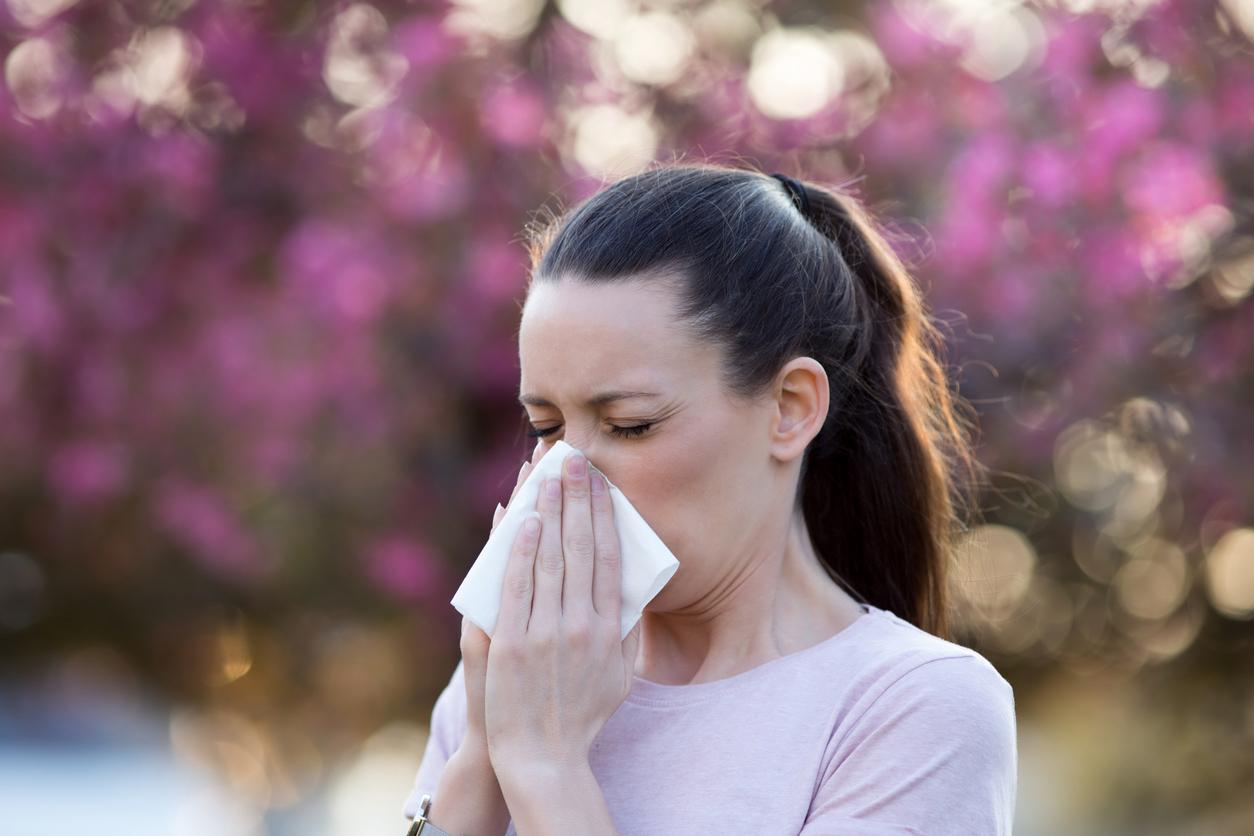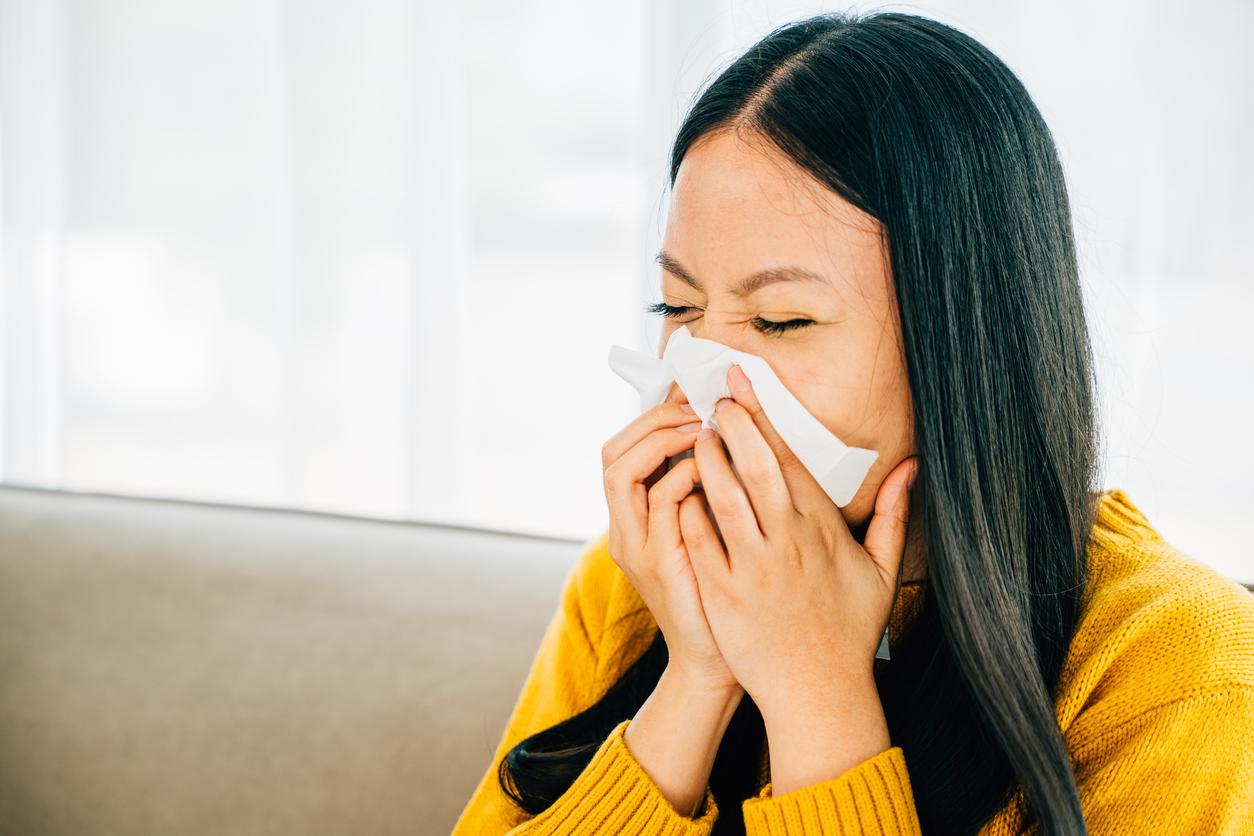Runny nose, sneezing… when these ailments appear in the spring, how do you know if it’s a cold or a pollen allergy?

- It is particularly tricky with the arrival of fine weather to tell the difference between a cold and a pollen allergy.
- If your runny nose, cough, and sore throat come on quickly, followed by a tingling sensation and pain, it’s probably a cold.
- If you suffer from sneezing or even itchy eyes and nose and they vary depending on the day, it could be an allergy.
The days are getting longer, the light is brighter, the temperatures are becoming milder… No doubt, spring is here. On the other hand, how do we know if our repeated sneezes and sniffles are linked to a cold or a seasonal allergy? Questioned by his establishment, Dr Lou Papa of theUniversity of Rochester Medical Center recognizes that “It’s particularly tricky at this time of year” to properly identify the disorder that affects us, “when colds are frequent and long-awaited blooms can be inconvenient”.
Colds: the signs that reveal it
Since the arrival of SARS-CoV-2 in our lives, the first reflex to have when faced with an influenza state is to get tested for Covid-19. Once this hypothesis has been ruled out, the expert indicates that it is probably a cold if:
- runny nose;
- cough and sore throat came on quickly;
- a tingling sensation is felt in the nose: it can cause sneezing;
- dull pains appear in the ears and headaches in the forehead;
- a wave of fatigue sets in.
The common cold, also called nasopharyngitis or acute rhinitis, is a mild viral infection. Several viruses can cause it: rhinovirus, influenzae, coronavirus… Its symptoms generally disappear after 7 to 10 days. If they persist longer or worsen, you should consult a doctor warns the expert.
Spring allergy: it lasts as long as the allergen is present
Allergies are not transmissible: they are triggered by an allergen such as pollen, animal dander or dust. The symptoms of this disorder, nicknamed hay fever, are sneezing and itchy eyes or nose. Another clue to an allergic reaction: the signs “are more predictable and then they go up and down a bit”.
Moreover, these ailments can last for weeks or months, depending on what is in bloom and in the air.
I’Health Insurance adds that “only pollen transported by the wind is allergenic”. We can cite :
- tree pollen: birch, cypress, plane tree, oak, ash, hazel…;
- pollen from grasses: tares, bluegrass, cocksfoot, etc.;
- grass pollens: artemisia, plantain, parietaria.
Air pollution increases their aggressiveness. Moreover, allergies can develop at any age. If in doubt, do not hesitate to make an appointment with an allergist for an assessment.
















